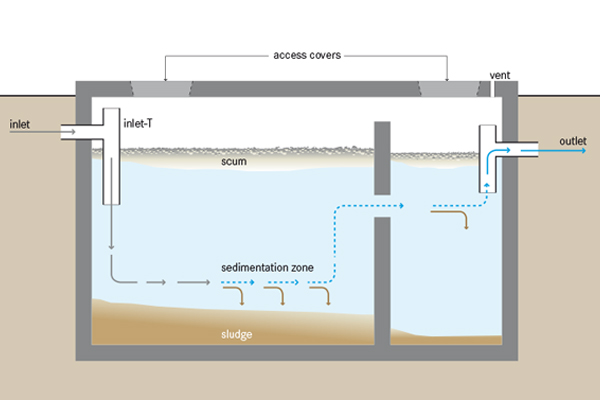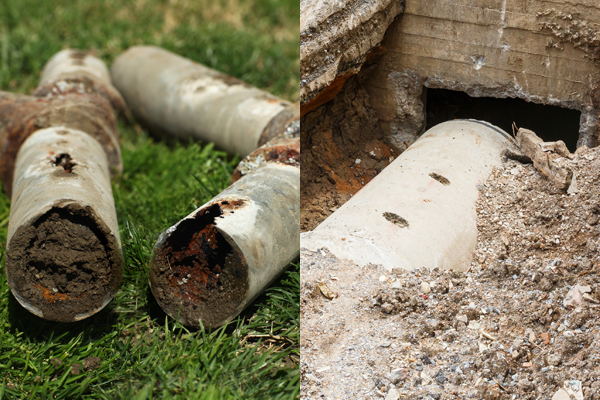
At Atlanta Septic Tank Pros, our partner technicians can help you identify what septic tank size is best, whether you need a new reservoir installed or are getting a new system placed to serve your home or business. If you're managing a commercial or industrial install, always defer to the experts, so you can be sure you're getting the right equipment for your concerns. However, most homes have similar requirements and utilize their systems in much the same ways, so there are a few guidelines you can use if you're trying to select the right one.
Why C hoosing the Right Septic Tank Size Matters
When wastewater enters the reservoir, it needs time to break off. Buoyant materials collect at the top, in a layer called "scum." This will include things like grease, oil, and toilet paper. Dense materials will fall to the bottom in a layer referred to as "sludge." The partially clarified liquid in the center is called "effluent," and, once the solids separate from it, it can move onto the next phase, which is typically a leach field. If a unit is too small, it can be easily overwhelmed by several people taking showers or by doing too many loads of laundry. The liquid will try to go out to the leach field before it has had a chance to separate and this can clog the system, as well as pose health risks. The bacteria in the tank also breaks down the sludge, and as much as 50% will be turned into liquid and gases if the reservoir is effective, so going with bigger dimensions helps ensure you don't have to have it pumped more tha n normal. Going bigger also allows you to add on bedrooms without upgrading later and accommodate house guests without worry of an issue. However, there are some downsides to going too big, which include the initial costs and the potential for freezing in the winter.
How Much Water Do You Use?
The amount of wastewater the household makes is very closely related to how much potable water comes in. If your family already has city water, versus well water, or is coming from a home that does, it's very easy to tell how much you've been using. If not, you can employ the guide below to get a general idea as to how much water you're using.
Regular Use: 50-100 gallons per person per day
Bathing: 25-60 gallons per bath/ shower
Dishwasher: 7-50 gallons per load (check your manual).
Garbage Disposal: 4-6 gallons per day.
There are other things, such as pools, water softeners, an d lawn irrigation that are not included here. Try to keep these in mind as you work out your estimate. In homes with low water usage, your reservoir will need to hold roughly twice the number of gallons you use. As your water usage goes up, the gap narrows some.
There is a myriad of guidelines that pertain to choosing the right tank size and some local codes may apply based on where you're living. The number of people, rooms, bathrooms, and fixtures in the home may all be chosen to help calculate the minimum septic tank size for your needs. The guide below will assist. If it brings you conflicting results and one aspect of your home bumps up the reservoir volume, it's generally best to go larger.
Get Help Choosing the Right Septic Tank Size
These numbers only serve as a general guideline, and the functionality of your general system depends on you getting your numbers perfectly. Don't leave it to chance. Call A tlanta Septic Tank Pros and let our partner technician evaluate what's best for your needs, based on how your water usage and circumstances. Our partner technicians can also help with installing and maintaining your system, so you can rest assured it's done right, will serve you well, and will last for decades. Call (404) 998-8812 today. http://atlantaseptictankpros.com






